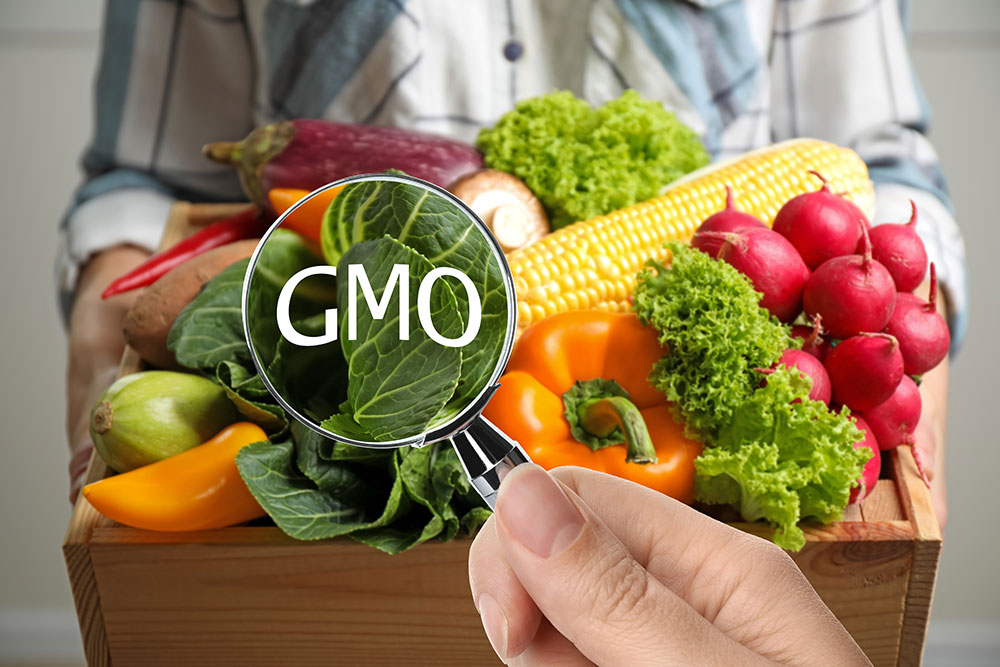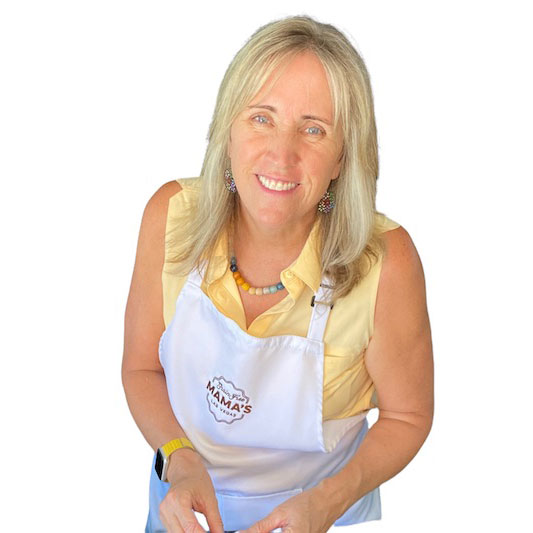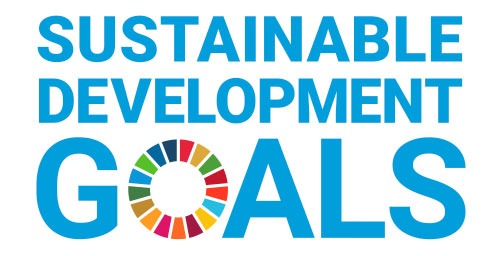The Hidden Costs of GMOs and Bioengineering: Unpacking the Impact on Human Health

The term ‘bioengineered’ has replaced GMO (genetically modified) on food labels. It is now a buzzword in food production, with the assumption by some that it is progress. According to Wikipedia, “Biological engineering or bioengineering is the application of principles of biology and the tools of engineering to create usable, tangible, economically viable products.” If you go to this link, you will see right at the top, “For Bioengineered food, see Genetically modified food.”
This begs the question, ‘Why the change in terminology if they are the same?’
The answer … CONSUMER PERCEPTION.
GMO’s have received a lot of negative press. Health-conscious and autoimmune affected consumers are trying to stay away from these ingredients and products, which is becoming increasingly difficult. The subject of bioengineered or genetically modified (GM) food is a complex one with passionate arguments on both sides. The pushback generally comes from a few main areas:

- Health Concerns: There’s a perception that GM foods may have unknown long-term health risks. Critics argue that not enough independent studies have been conducted to ascertain the safety of GM foods for long-term human consumption. (Remember this when you read below about Dolly.)
- Environmental Impact: The use of genetically modified crops may result in unforeseen environmental consequences. For example, GM crops might crossbreed with wild or traditional varieties, leading to “superweeds” or loss of biodiversity.
- Economic Implications: Patents on GM seeds can result in large agribusiness companies holding significant control over seed supply, thereby affecting the economic dynamics of farming and potentially marginalizing smaller farmers.
- Ethical and Moral Concerns: Some people argue that manipulating the genetic makeup of an organism crosses an ethical line.
- Labeling and Transparency: A lack of clear labeling standards can lead to consumer distrust. People want to have the choice of whether or not to consume GM foods.
- Global Food Security: There’s an argument that GM technology can exacerbate food inequity globally. Wealthier nations might have better access to the benefits of GM foods while poorer nations are left behind.
- Nutritional Integrity: Critics also argue that the bioengineering process can alter the nutritional content of food, although this is a topic of ongoing study and debate.
When I was in college, back in the early 1980’s, cloning was all the rage. We extensively studied it, discussed the possibilities and ramifications, and even back then it was a polarized topic. The cloning of Dolly the sheep in 1996 was a groundbreaking moment in the field of biotechnology, but it also raised a number of concerns and highlighted limitations. Here are some of the key issues:
- Low Success Rate: The process of somatic cell nuclear transfer used to create Dolly had a very low success rate. Out of 277 attempts, only one resulted in a live birth, which demonstrates the inefficiency and high rate of failure in cloning efforts.
- Premature Aging: Dolly aged exponentially more quickly than naturally born sheep, which raised concerns about the long-term health and viability of cloned organisms. She developed arthritis at a young age and was euthanized at the age of six due to a progressive lung disease, which is relatively young for a sheep’s lifespan.
- Genetic Anomalies: Cloned animals, including Dolly, often experience a range of genetic anomalies that can lead to developmental issues, health problems, and a lower quality of life.
- Ethical Concerns: The cloning of Dolly raised significant ethical and welfare questions, not just for the clones themselves but also for the surrogate mothers and the numerous embryos that did not develop successfully.
- Resource Intensive: The process of cloning is resource-intensive, requiring specialized equipment, materials, and expertise, which makes it an expensive method of reproduction.
- Social and Ethical Implications: Dolly’s birth led to increased discussions about the potential for human cloning, opening a Pandora’s box of ethical and moral dilemmas, including concerns about “designer babies” and the potential misuse of cloning technology.
- Imprinting Errors: Cloning can result in errors in genetic “imprinting,” a phenomenon in which the activity of a gene depends on whether it was inherited from the mother or the father. Incorrect imprinting can lead to developmental and health issues.
- Public Perception: The cloning of Dolly led to widespread public debate and affected the perception of biotechnology, leading to increased scrutiny and regulation in some jurisdictions.

While Dolly’s cloning provided invaluable insights into cellular biology and genetic research, the problems and limitations highlighted by her case remain central to ongoing debates about the ethics and feasibility of cloning.
Cloning and genetic modification (or bioengineering) are both techniques within the field of biotechnology that involve manipulation of genetic material to achieve specific outcomes. Here’s how they intersect:
- Genetic Material as Basis: Both processes rely on the understanding and manipulation of DNA, the fundamental building block of life.
- Controlled Environment: Both cloning and genetic modification require specialized lab environments, with high levels of control over variables like temperature, medium, and sterility.
- Reproductive Technologies: Both often use similar reproductive technologies like in vitro fertilization, especially in the case of cloning animals or modifying the genes of embryos.
- Cell Culture Techniques: In both cloning and genetic modification, cells are often cultured in a lab setting before being implanted into an organism or used for further study.
- Purpose-Driven: Both technologies aim to produce organisms with specific traits. While cloning seeks to create an identical copy, genetic modification aims to produce an organism with new, targeted traits.
- Ethical Concerns: Both raise significant ethical questions about the manipulation of life, from concerns about ‘playing God’ to questions about the welfare of animals involved in the processes.
- Policy and Regulation: Both are subjects of intense public scrutiny, and we hope, regulatory scrutiny (Or does $$$ rule the day over regulatory scrutiny?). The ethical, health, and environmental concerns surrounding these technologies have led to various degrees of legislation and oversight.
- Technological Tools: Advances in one field often benefit the other. For instance, CRISPR technology, initially developed for gene editing, could potentially be used to improve cloning efficiency. Now CRISPR is utilized in food production, yet the testing to ascertain if these new food products are safe long-term hasn’t caught up.
- Medical Applications: Both have potential medical applications, whether in terms of gene therapies for genetic modification or the cloning of cells, tissues, or even organs for transplantation.
- Agricultural Applications: Both techniques are being explored for their ability to improve crop yield, disease resistance, or nutritional content in the case of genetic modification, and to duplicate superior livestock in the case of cloning.
Two cultured meat factories are now approved in the United States. Even writing that term… it looks and sounds so unappealing to me. So now our meat protein isn’t even going to be as nature made it??? According to the Good Food Institute, “Cultivated meat, also known as cultured meat, is genuine animal meat (including seafood and organ meats) that is produced by cultivating animal cells directly. This production method eliminates the need to raise and farm animals for food.”
To conclude, the verdict is out on the heath cost. There isn’t much to support all the marketed benefits to individuals who are now consuming these foods. I feel kind of like the whole world is now treated like a laboratory. We are the test cases in real time of these experiments, kind of like we’ve become the ‘rats in the lab’ now.
Therefore it is more important than ever to learn, read and find out what is in the food you are eating. We’ve created A Place At The Table Global Community to be a place where people from all over the world can come together to learn, share and grow our knowledge of healthy food. It is vital that each of us take back control of our health, starting with every bite we take. We have one life to live, with no physical body ‘do-overs’.
At Grain Free Mama’s, we have delicious allergen-free baking mixes. Created naturally utilizing the highest quality, low inflammatory ingredients for people who ‘have to’ or ‘choose to’ eat delicious foods that are as tasty as they are good for you. We are on a mission to provide the products and educational resources to help you to change the way you look at food, so that you can eat guilt free, feel the best, and can live life to the full.

My vision is to help people to find hope, and deliciously eat their way back to good health and food freedom. I am determined to provide not just products, but also the educational resources and the community to help people live their best lives. We make our food choices based upon the level of our nutritional knowledge. Want to make changes? Learn, grow, and watch your level of health soar.
“I believe that we can have delicious baked goods that are good for us at the same time. Everyone wants to eat foods that will nourish our bodies, NOT foods that will eat us alive from the inside out after we eat them. Grain Free Mama’s baking mixes give nourishment. This is a big part of sustaining our planet. First, we sustain the people, then as healthy people we will take better care of our planet home. That’s REAL SUSTAINABILITY. Grain Free Mama’s Sustainable Development Goal is #2: ZERO HUNGER. Our belief is that this will happen when all people, regardless of income, have access to health-giving foods. SUSTAINED PEOPLE WILL SUSTAIN THE PLANET.” -Margie Traxler

Written by Margie Traxler
Grain Free Mama’s is a FoodTech Consumer Product Goods company. We make gluten/grain/sugar free (Edible Grasses Free), dairy free and botanical nut free baking mixes that put the simple back into simply good for you. We also have educational resources to help you on your healthy eating journey. Margie, the Founder/CEO, received her B.S. in Biology from Portland State University. She has 22 years of experience as a successful Restaurant owner. She lives and operates her business in Henderson, Nevada.





